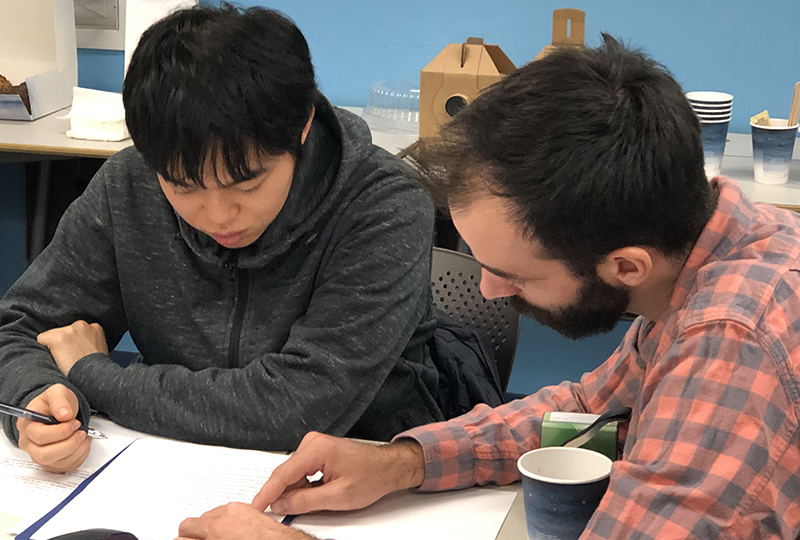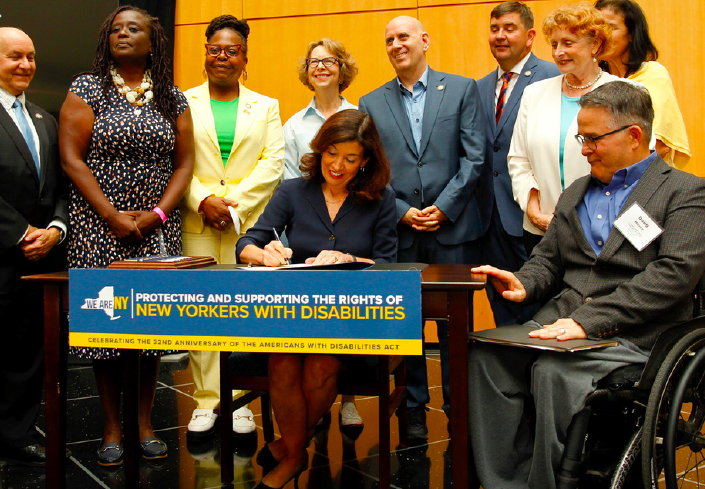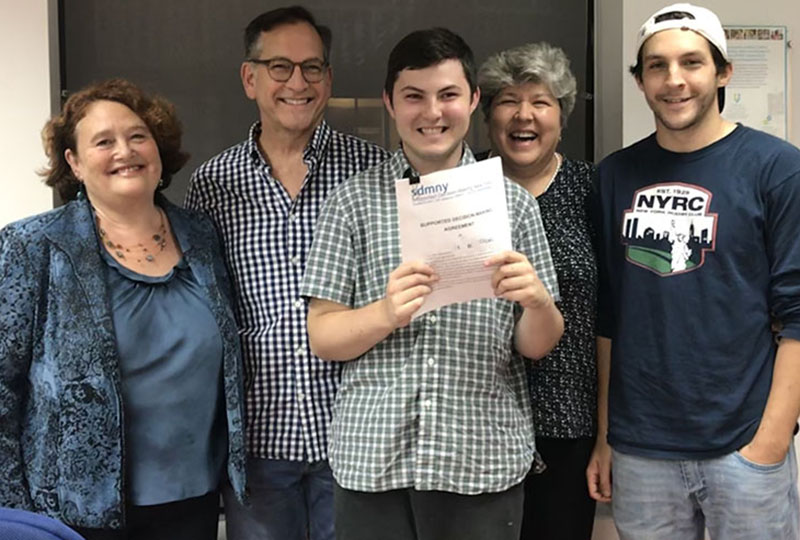What is Supported Decision-Making?
Supported decision-making (SDM) is a now well-recognized practice by which people withintellectual and developmental disabilities (I/DD) are able to make their own decisions with thesupport of trusted persons in their lives, retaining all their legal and civil rights. It comes from ourcommon understanding that no one makes decisions in a vacuum, and we all use supports fromfamily, friends and/or experts. SDM has been found by New York courts, and now by the NewYork Legislature, to be a less restrictive alternative to guardianship, which takes away all of a person’s rights.
Hear two Decision-Makers speak about Supported Decision-Making:
What is Supported Decision-Making facilitation?
In order to make their own decisions, people with I/DD need to learn what decisions are, and what steps go into making them. SDMNY’s facilitation process is a tested three-phase process where trained facilitators work with individuals with I/DD (“decision-makers” or “DMs”) helping them to identify areas of decision-making where they might want help, choosing trusted people as their supporters, and then creating the written Supported Decision-Making Agreement(SDMA). SDMAs can always be changed at any time to reflect the types of important decisions and new trusted people in individuals’ lives as they grow and change.

What is Supported Decision-Making facilitation?

Because of stigma, prejudice or fear of liability, third parties, like health care providers or financial institutions have often refused to accept decisions made by people with I/DD, insisting instead that a guardian be appointed in order for them to provide the requested/needed service. On July 26, 2022, Governor Hochul signed New York’s SupportedDecision-Making Agreement Act, built upon Principles developed by SDMNY. This human and civil rights legislation recognizes SDM as an alternative to guardianship and prohibits discrimination against decisions made by people with I/DD with an agreement (SDMA)developed through SDMNY’s facilitation process. New York Courts are increasingly deciding that as a less-restrictive alternative, SDM can be used to avoid the necessity for guardianship in the first place, or as a means to restore the rights to persons already under guardianship.
What are the benefits of Supported Decision-Making facilitation?

In addition to protection from discrimination provided by the new SDMA law, SDM facilitation has been shown to increase self-determination, confidence, inclusion and overall well-being for Decision-Makers(DMs). It provides parents with confidence in a robust and caring support system in place when they will no longer be around. It changes relationships between the DM and their supporters from protection and supervision to appreciation and recognition of the individual as an adult, capable of making decisions about their lives. SDM facilitation has been described by virtually everyone who has gone through it, Decision-Makers, supporters, and even facilitators, as“transformative.” In a major report, Beyond Guardianship: Toward Alternatives That PromoteGreater Self-Determination, the National Council on Disability wrote that supported decision-making:
“fosters self-determination which results in being “more independent, more integrated into [the] community, better problem solvers, better employed, healthier, and better able to identify and resist abuse” and that “[P]eople with intellectual and developmental disabilities learn through the process of making decisions…It’s not about protecting someone. It’s about teaching them how to best protect themselves”
Hear a parent speak about Supported Decision-Making
Who/What is Supported Decision-Making New York (SDMNY)?
SDMNY is housed at Hunter College. It began as a funded project of the NYS Developmental Disabilities Planning Council (DDPC) and now operates under funding from OPWDD to make SDM facilitation available across NY State. SDMNY is currently accepting referrals of potential Decision-Makers from the courts, private attorneys, service providers, care managers, families and, of course, people with I/DD, Self-Advocates themselves. The service is entirely free.
How do we begin the process?
For more information, please visit our website at sdmny.org. If you would like to sign-up for SDMNY facilitation, visit our events page and register for a weekly “Informational Sign-Up Session” where you will learn about the process and what to expect, and can sign up to participate.
Download the PDF version of this material